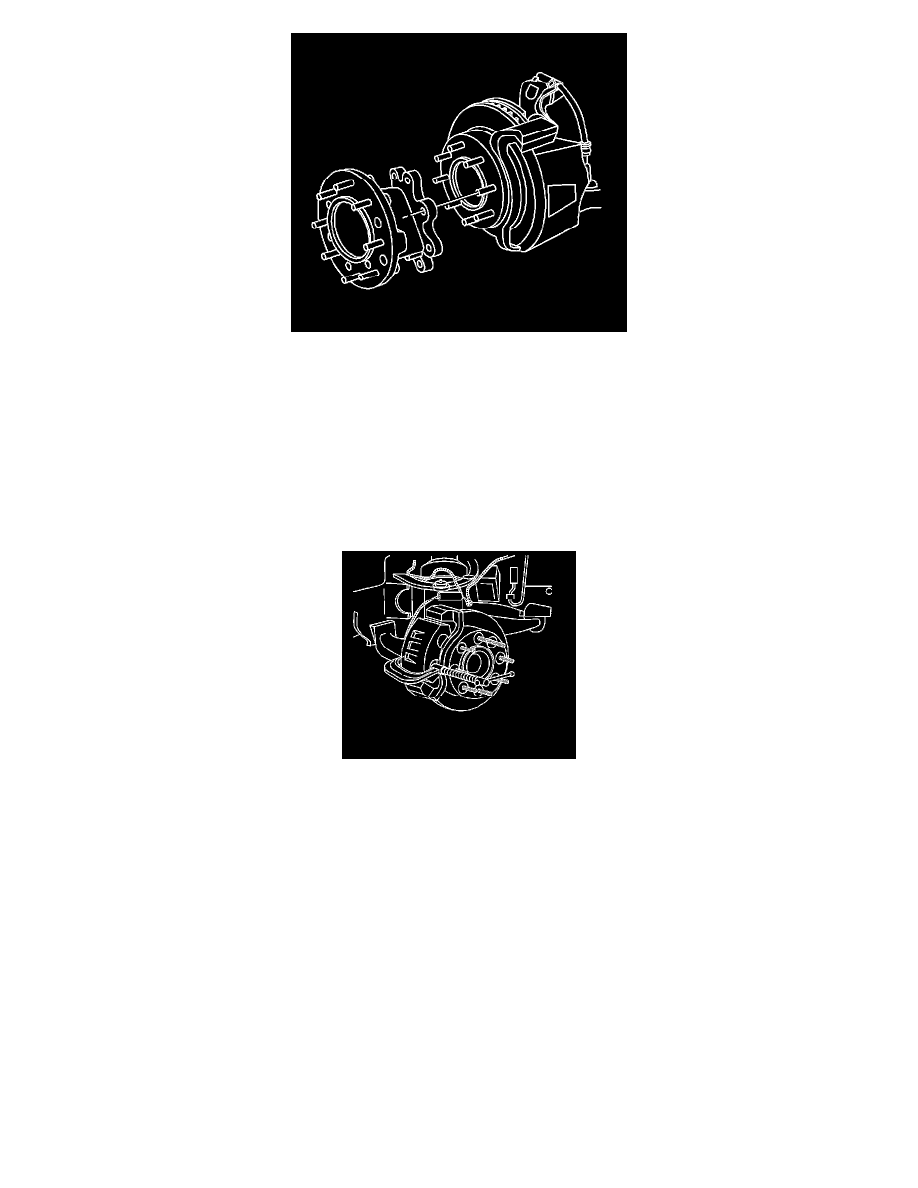Silverado 2500 2WD V8-8.1L VIN G (2005)

1. Notice: Any new rotor must have the protective coating removed from the friction surfaces before being placed in service. Remove the protective
coating using denatured alcohol or an equivalent, and wipe the surface clean with clean cloths. Do not use gasoline, kerosene, or other oil base
solvents which may leave an oily residue. This residue is damaging to the brake lining and is flammable.
Remove the tire and wheel assembly.
2. Remove the front wheel hub extension, dual wheel vehicles only.
1. Insert a drift or large screwdriver through the brake caliper into one of the brake rotor vanes in order to prevent the rotor from turning.
2. Mark the relationship of the front wheel hub extension to the hub.
3. Remove the front wheel hub extension nuts.
4. Remove the front wheel hub extension from the vehicle. It may be necessary to tap around the perimeter of the hub extension with a rubber
mallet to loosen it from the hub.
3. Inspect the fluid level in the brake master cylinder reservoir.
4. If the fluid level is midway between the maximum - full point, and the minimum allowable level, no fluid needs to be removed from the reservoir
before proceeding.
5. If the fluid level is higher than midway between the maximum - full point, and the minimum allowable level, remove fluid to the midway point
before proceeding.
6. Mark the relationship of the rotor to the hub.
7. Compress the brake caliper pistons.
1. Install 2 large C-clamps over the top of the caliper housing and against the back of the outboard pad.
2. Slowly tighten the C-clamps until the pistons are pushed completely into the caliper bores.
3. Remove the C-clamps from the caliper.
